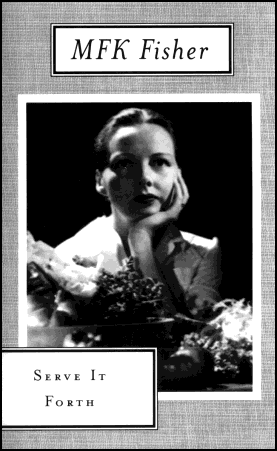land

When it is round and bubbling and giving out a dark blue smell, it is done. Then, without some blowing all about, you'll burn your tongue. But it is delicious.
However, it is not my secret delight. Mine seems to me less decadent than Claudine's, somehow. Perhaps I am mistaken. I remember that Al looked at me very strangely when he first saw the little sections lying on the radiator.
That February in Strasbourg was too cold for us. Out on the Boulevard de l'Orangerie, in a cramped dirty apartment across from the sad zoo half full of animals and birds frozen too stiff even to make smells, we grew quite morbid.
Finally we counted all our money, decided we could not possibly afford to move, and next day went bag and baggage to the most expensive pension in the city.
It was wonderful --- big room, windows, clean white billows of curtain, central heating. We basked like lizards. Finally Al went back to work, but I could not bear to walk into the bitter blowing streets from our warm room.
It was then that I discovered how to eat little dried sections of tangerine. My pleasure in them is subtle and voluptuous and quite inexplicable. I can only write how they are prepared.
In the morning, in the soft sultry chamber, sit in the window peeling tangerines, three or four. Peel them gently; do not bruise them, as you watch soldiers pour past and past the corner and over the canal towards the watched Rhine. Separate each plump little pregnant crescent. If you find the Kiss, the secret section, save it for Al.
Listen to the chambermaid thumping up the pillows, and murmur encouragement to her thick Alsatian tales of l'intérieur. That is Paris, the interior, Paris or anywhere west of Strasbourg or maybe the Vosges. While she mutters of seduction and French bicyclists who ride more than wheels, tear delicately from the soft pile of sections each velvet string. You know those white pulpy strings that hold tangerines into their skins? Tear them off. Be careful.
Take yesterday's paper (when we were in Strasbourg L'Ami du Peuple was best, because when it got hot the ink stayed on it) and spread it on top of the radiator. The maid has gone, of course --- it might be hard to ignore her belligerent Alsatian glare of astonishment.
After you have put the pieces of tangerine on the paper on the hot radiator, it is best to forget about them. Al comes home, you go to a long noon dinner in the brown dining room, afterwards maybe you have a little nip of quetsch from the bottle on the armoire. Finally he goes. Of course you are sorry, but ---
On the radiator the sections of tangerine have grown even plumper, hot and full. You carry them to the window, pull it open, and leave them for a few minutes on the packed snow of the sill. They are ready.
All afternoon you can sit, then, looking down on the corner. Afternoon papers are delivered to the kiosk. Children come home from school just as three lovely whores mince smartly into the pension's chic tearoom. A basketful of Dutch tulips stations itself by the tram-stop, ready to tempt tired clerks at six o'clock. Finally the soldiers stump back from the Rhine. It is dark.
The sections of tangerine are gone, and I cannot tell you why they are so magical. Perhaps it is that little shell, thin as one layer of enamel on a Chinese bowl, that crackles so tinily, so ultimately under your teeth. Or the rush of cold pulp just after it. Or the perfume. I cannot tell.
There must be some one, though, who knows what I mean. Probably everyone does, because of his own secret eatings.
Mary F. K. Fisher
©1989 North Point Press